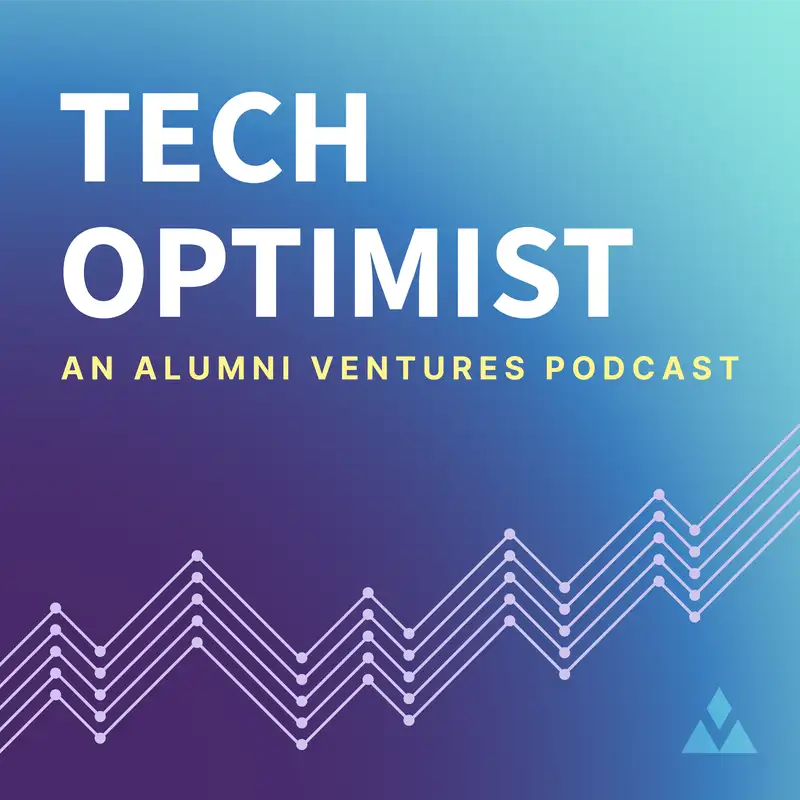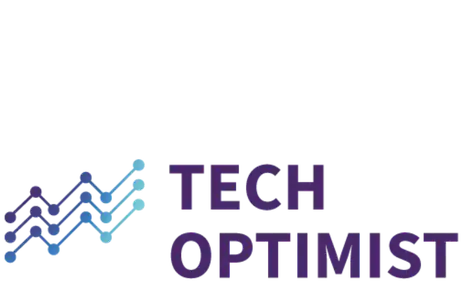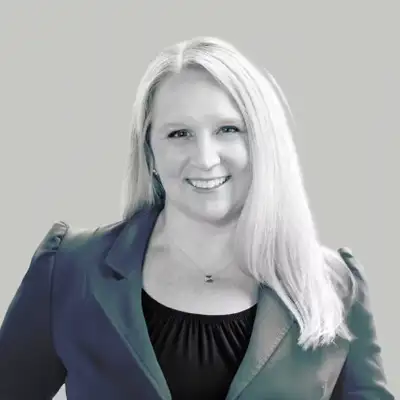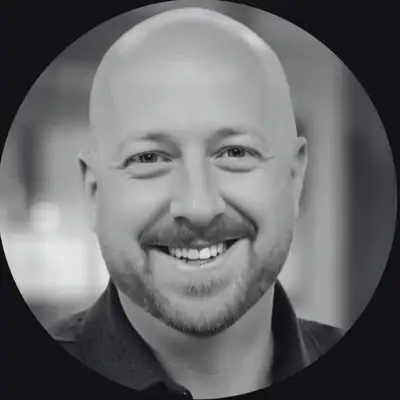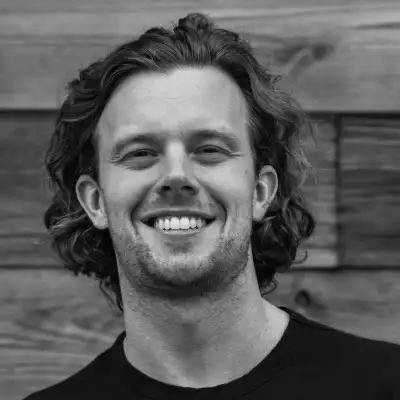#8 - One Startup to Know: UserHub
Speaker 1:
In a world captivated by criticism, it's easy to overlook the groundbreaking technology shaping our future. Let's shine a light on innovators who are propelling us forward. As the most active venture capital firm in the US, we have an exceptional view of tech's real-world impact. Join us as we explore, celebrate, and contribute to the stories of those creating tomorrow. Welcome to the Tech Optimist. As a reminder, the Tech Optimist podcast is for informational purposes only, is not personalized advice and is not an offer to buy or sell securities. For additional important details, please see the text description accompanying this episode.
Mike:
Hi everybody. Welcome to another episode of the Tech Optimist podcast. In this episode, I chat with Patrick Rafferty, who's the CEO and founder of UserHub, a company that provides subscription management for small and medium-sized businesses. Subscription management obviously is a piece of a platform that has immediate payback and where a better product allows you to compete with much bigger companies. So we're really excited to be an investor. It's a great conversation. Enjoy.
Hey, everyone. I'd love to take a moment to tell you a bit about Alumni Ventures and our foundation fund. AV offers smart, simple, and accessible venture portfolios. We built our firm to serve the needs of individual investors, and we've raised over $1.3 billion from a community of more than 10,000 investors. PitchBook ranked AV the most active VC in the United States in both 2022 and 2023, and CB Insights ranked AV a top 20, performing VC for 2024.
So where might investors start? Some of the people we talk to are interested in our foundation fund, one of our broadest and most diversified offerings. This fund taps into our substantial investment engine offering investors a robust and diversified venture portfolio with deals sourced from many of our investing teams and with renowned lead investors such as these. The Foundation fund portfolio is spread across stage, sector, geography, and lead investor to help ensure a diversified and balanced mix in your portfolio. For an investor new to Alumni Ventures, it could be a great place to start. Ready to learn more? Visit us at av.vc. I'm really excited today to talk to Patrick Rafferty. He's one of our portfolio company CEOs with a company called UserHub. Patrick, nice to meet you. Where does this find you today?
Patrick Rafferty:
I am in Brooklyn in the Greenpoint neighborhood of Brooklyn.
Mike:
Awesome. Great neighborhood. So just to get to know you a little bit more personally before we kind of get into UserHub, what was the first concert you ever went to and what was the most recent concert you went to?
Patrick Rafferty:
I think the first concert I ever went to was the Red Hot Chili Peppers.
Mike:
Not bad.
Patrick Rafferty:
Yeah, I think that was probably the first one. Most recently, I want to say the most recent concert I've been to was The Dead and Co at MetLife Stadium.
Mike:
That's cool. I think it's a matter of time before they're at the sphere I think.
Patrick Rafferty:
That's right.
Mike:
I think [inaudible 00:03:59] and I think that's going to be part of the whole experience.
Patrick Rafferty:
Yep. Yeah.
Mike:
So tell us a little bit about UserHub. What do you guys do? Where are you kind of in your venture journey?
Patrick Rafferty:
Yeah, so about two years ago, co-founded a startup called UserHub, and UserHub is a user-based billing platform, and our goal is to make modern monetization infrastructure available to every B2B software business. And just to get the listeners oriented, I think it's worth referencing a few examples from other industries. So if you zoom out and you look at the economy at large, buying experiences are being reinvented all over the place. You can go on Tesla's website right now. You can go through a checkout flow online to buy $100,000 car. Even local governments here in New York, when I first moved to New York, if you wanted to get on the subway, you had to buy a yellow subway card that you swiped at the turnstile, right? Now you just kind of wave your phone at the turnstile and cruise through.
So my point is buying experiences are evolving everywhere now. If we turn our attention back to our corner of the world and the customers we are serving at UserHub, which are other business software vendors, there's a similar trend playing out. But so far it's only here for the leading SaaS products for products like HubSpot, like Zoom, like Slack. Exactly. And the issue is there's 40,000 SaaS companies at this point, but the vast majority of them don't have the resources to build out this monetization infrastructure on their own. And so that's where we see ourselves coming in at UserHub is to help level the playing field.
Mike:
And this is a model that venture capitalists like to play, frankly, which is you see something happening in market A and then market B, it's obviously a very logical thing for us to get our heads around it. If this is working in this segment, this is going to work here. And obviously the nice thing about B2B is if you can become that kind of embedded part of the system, it is just much stickier than other businesses. And one of the reasons B2B is really so successful. So where are you in two years isn't a very long time. How are you doing in your stage of financing? Where are you in your journey?
Patrick Rafferty:
So we raised our first round, which was a pre-seed at the start of 2023. It was a $3.2 million pre-seed. It took us 11 months to get the first iteration of our product to market. It turns out when you're remixing user management, subscription management in one platform, it takes a long time to do it, but we onboarded our first customer basically in December of 2023. So since then we've been onboarding others. They've been a set of customers who've been giving us a lot of feedback at times they've been very patient with us with some of the mistakes that we've made, but they've also been very enthusiastic. So we're kind of off to the races a little bit now. We have a high degree of confidence that we're building in the direction of demand, and initially we were very conservative and frugal with our spend. We kept the team down to four and I think we're ready to grow the engineering team a little bit and get a little bit more firepower.
Mike:
You must already be thinking about for your seed or your next round of financing, where do you want to be, what are the key milestones you're looking to hit? Just again, to give our listeners part of being an entrepreneur is just kind of hitting the next set of milestones for the next round of finance.
Patrick Rafferty:
Yeah, sure. So right now our ICP, and by ICP I mean our ideal customer profile, our target market is smaller software companies. And that's a common evolutionary path for a business like ours because you start with smaller companies with simpler requirements and then you work your way up to the big ones. So we started with these smaller companies, SaaS startups. And so I think one of the things that we have to show is we have to show that we can get to these startups in a low touch way and be able to onboard them consistently. When you're going after these smaller companies, you can't spend a lot of money getting to them. So we have to be able to show that we can get to them and onboard them without much effort. The second thing, which is kind of a corollary of the first is that we need to show that we can grow with them. When we have these customers who do grow fast, the last thing we want is them graduating away from us.
And so they're going to have feature requests. We want to make sure that we can stay ahead of them, and ultimately that's what we want. We want this early set of customers who hopefully go off and do well and grow fast and pull us up market and pull our product up market and help us mature. And then I guess the third thing I would say is I want to really start to build the brand. I don't want to be dependent on paid search or buying ads on LinkedIn. I think the best B2B companies now in 2024, they're almost consumer-like in terms of the emotional connection they create with their audience. I was just at Stripe Sessions, the Stripe conference, and people love that brand. And look, I'm not going to get there and I don't expect to UserHub sessions by the time we hit our seed round, but I would like to plant the seeds of building that brand.
Mike:
Yeah, that's definitely something to aspire to. And again, one thing that we like about your approach is just really focused on this one particular problem, this one particular segment. Again, it is I think a common mistake that people make as an entrepreneur is really trying to do too much for too many people. And the idea is if you can get in and solve a problem that's a pain point but can be pretty narrow, you can build on that relationship and you can build on that product.
And I was just having lunch with a somewhat related story, but not quite, a lawyer who basically made their career because they were the very first lawyer of a three person company and 15 years later that's a $15 billion market cap firm and they have a whole staff of a huge law firm which does nothing but serve this client. And that's kind of the idea is if you can get in, solve a problem, you can grow with the client and then land and expand with other features and things like that. It sounds like the ask is going to be, I'll turn it over to you, how can our community help you, Patrick?
Patrick Rafferty:
Yeah, I think it's if you are a B2B SaaS founder and you're thinking about pricing and packaging or you're thinking about billing, I'd love to speak with you and I'd open it up even further to folks who aren't founders. If you just happen to be working in software and you're a product manager or you're a revenue leader, you're whoever and you want to talk through software monetization, I'd love to have that conversation. And my email is just patrick@userhub.com and I respond to all my emails.
Speaker 4:
Hey, everyone, just taking a quick break so I can tell you about the Deep Tech Fund from Alumni Ventures. AV is one of the only VC firms focused on making venture capital accessible to individual investors like you. In fact, AV is one of the most active and best performing VCs in the US and we co-invest alongside renowned lead investors. With our Deep Tech Fund, you'll have the opportunity to invest in innovative solutions to major technical and scientific challenges, which can have a hugely positive effect on society, companies that have the potential to redefine industries and create a more sustainable future and deliver significant financial returns. So if you're interested, visit us at av.vc/funds/deeptech. Now back to the show.
Mike:
Excellent. And tell us a little bit about one of the things that has been a big surprise for you over the past couple of years. I mean, maybe one thing that's been like a pleasant surprise and one thing that's maybe been a little bit more of a challenge than you knew when you started.
Patrick Rafferty:
Yeah, I think that I'll start with the challenge. The challenge that you have with a product like ours is our product can be complicated. There's a lot of feature functionality that we can offer to our customers, but there's a trade-off with speed of implementation, time to value and onboarding. And I think when we first started, we're like, "Okay, we're going to show them the whole world." And that's proved overwhelming. And so what we're really focused on right now, our challenge to solve is we call it the base integration, like the V1 integration of a software vendor with UserHub, making that as simple as possible and packing as much punch into that, but really limiting the amount of integration code that they have to go through. And then providing a pathway to ramp up the complexity curve from there. Finding that balance has been tricky. So that's one thing.
Mike:
Picking the menu that you don't show them package A or B and let's get it in fast. And that's a starting point, right?
Patrick Rafferty:
Exactly. Exactly. Especially with the customers that we're serving startups, there's a lot of hair on fire problems and they want speed. So that has been the challenge. I think been a surprise and something that a surprise in a good way is the diversity of SaaS companies out there. It just sounds like there's SaaS companies for every niche now. And I love it. I meet people who founders of a project management app for the home building industry that's pretty narrow. I've met data and analytics companies just focused on CMBS, commercial mortgage-backed securities issuance, and it really highlights to me just all the niches that are available. And a lot of them aren't going to be maybe the next Zoom or Salesforce, but there's a lot of great businesses to be built there. And I think there's this emerging class of the middle class of SaaS that's really cool and it's a great avenue for entrepreneurship and these are the types of companies I would love to help.
Mike:
No, I mean it's like Mark was right, software has eaten the world, whereas at least it's half-eaten kind of thing because software's in every nook and cranny. How are you thinking about AI? I mean, that's actually a question that every VC is like, "How are you thinking about it these days?"
Patrick Rafferty:
Yeah, it was certainly a question that came up. I think there's sort of two sides that you hear with AI. I think on one side you hear people take the position that artificial intelligence is an inherently centralizing technology that caters to a few big companies who are going to dominate most things and sort of crowd out the market. That's one version. I think the other side of that story, the flip side of that story is that AI is going to be a great boon for entrepreneurship. The cost of building software is going to continue to come down and you're going to see this blossoming of niches. I don't know which way it's going to break. I hope it breaks the other way. I think that world would be more fun and more exciting, but we'll see.
Mike:
And I think that's an interesting breakdown. I mean, I think it might be and, I mean I think we could see is this a case where the Microsofts and the Apples and the Amazons and have a big place in the universe, for sure. I mean, there may just be, there's a role of capital and scale and just the needs of energy and data centers are probably so capital intensive that the bigger going to get bigger. But I think it can also be true at the same time that a small team can just accomplish a lot more and more efficiently.
And again, I can just give you some perspective, Patrick, too, which is just software in general, what you could accomplish with 100 people and $10 million in three years, I think a team of five with $2 million and six months can accomplish now. So I just think just that arc is I think going to continue. And so I think there's going to be more powerful small, mighty businesses that just can use technology, software, AI, AI centers, all of this kind of stuff I just think is scaffolding for at the end of the day, you've identified a problem that tens of thousands of little software companies, B2B software companies have.
And if you can efficiently use technology and expertise and best practices from one company, I mean, that's what a lot of these B2B stories have done is they've written some software, they solved a problem, and then they use that to solve 10 people's problems and they use that to then solve 100 problems. So yeah, you're in the middle with your sleeves rolled up doing the first few, and there's leverage there and you're going to figure it out, I'm sure. So keep up the good work. It was really nice to meet you, Patrick. Again, strongly encourage our viewership, our listeners out there, if this resonates with you, even if it's just to kind of talk through the problem with Patrick, I'm sure he'd love to talk to you and I look forward to catching up with you, Patrick, in a year and hearing more about the journey.
Patrick Rafferty:
Well, Mike, thank you very much for having me on. I really enjoyed the conversation, so thank you.
Mike:
Great. All right. Take care and have a great week.
Speaker 5:
As always. Thank you for listening to this episode of the Tech Optimist podcast. Tune in on Thursday for Mike's three breakthroughs chat with Alumni Ventures senior associate, Drew Wandzilak. They talk Neuralink's second FDA approved patient, food breeding and modification of particles found in the clouds. And remember, have a great week and keep building.
Speaker 1:
Thanks again for tuning into the Tech Optimist. If you enjoyed this episode, we'd really appreciate it if you'd give us a rating on whichever podcast app you're using and remember to subscribe to keep up on the weekly episodes. The Tech Optimist welcomes any questions, comments, or segment suggestions. So please email us at info@techoptimist.vc with any of those and be sure to visit our website at av.vc. Thanks again. Until next time.
